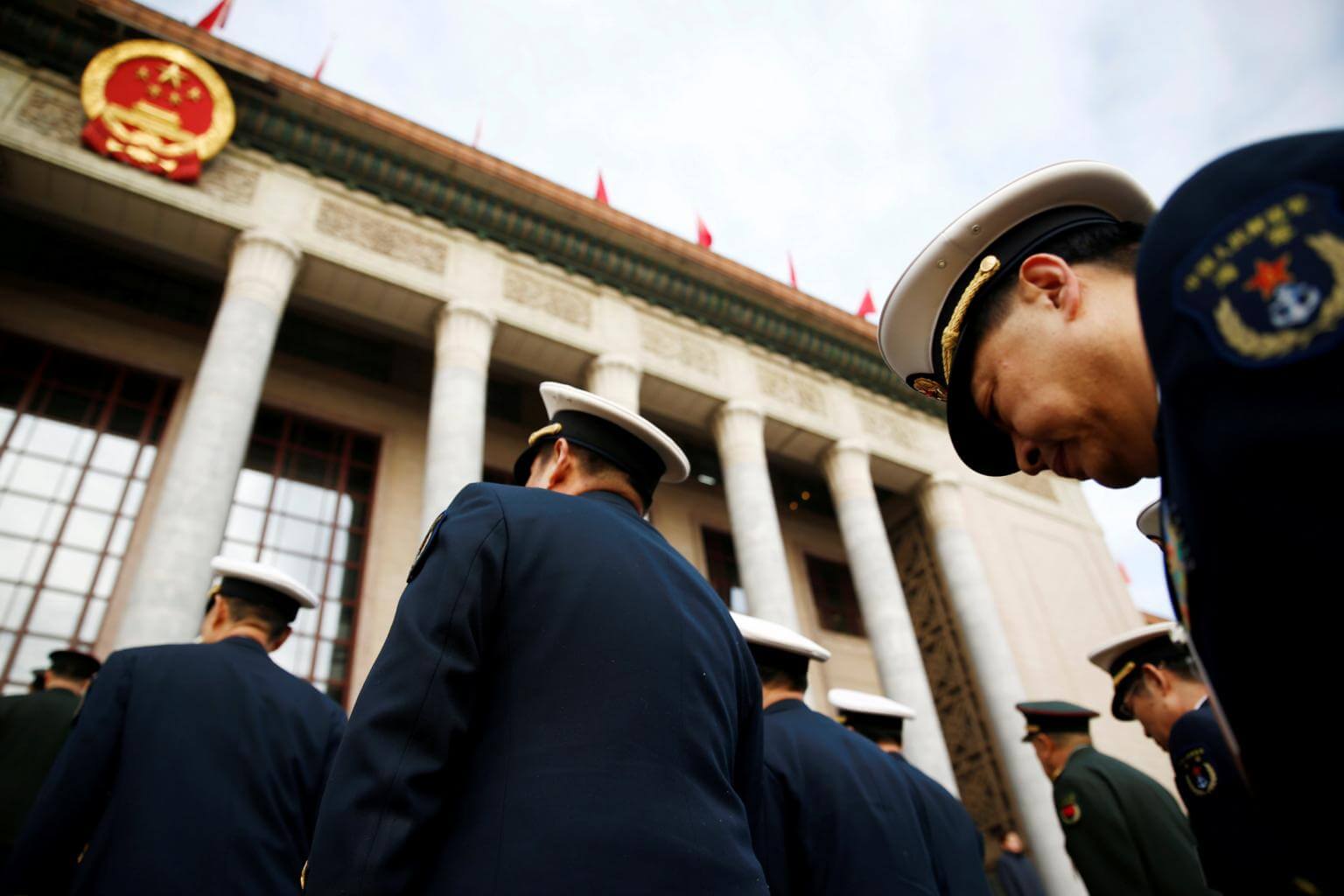Beijing gets ready for biggest political gathering
Sign up now: Get insights on Asia's fast-moving developments

Delegates arriving for the opening session of the National People's Congress at the Great Hall of the People in Beijing, China, on March 5, 2018.
PHOTO: REUTERS
BEIJING - Beijing is on high alert for its biggest annual political gathering where more than 5,000 of its top lawmakers, business leaders and celebrities meet to take stock of the past year and make plans for the year ahead.
In a year peppered with significant and sensitive anniversaries, security around the meeting venue, hotels and historic sites in the capital city is expected to be heightened.
The 2,000-member Chinese People's Political Consultative Conference (CPPCC), the country's top political advisory body, kicks off its series of meetings this Sunday (March 3), while the 3,000-strong national parliament, the National People's Congress, convenes next Tuesday.
Together, they are known as the "two sessions" or "lianghui", and typically last about 10 days.
While this year's key policy changes are not likely to top last year's dramatic scrapping of presidential term limits, they could reflect attitudinal changes brought on by the trade dispute with the United States, with a slew of measures aimed at tackling a slowing economy.
Chinese Premier Li Keqiang is expected to announce a growth target of between 6 and 6.5 per cent for this year as the country grapples with its weakest growth since 1990.
Legislators are likely to also push through a foreign investment law that bans forced technology transfers by foreign companies in China and offers greater intellectual property protection - the main bugbears of US trade negotiators locked in trade talks with China.
Already, some in the foreign business community has raised their concerns.
"We are concerned that the drafting of the Foreign Investment Law is being squeezed between the normal legislative process and the negotiation table with the US, in part to address the trade conflict," said Mr Mats Harborn, president of the European Union Chamber of Commerce in China.
"This law will have major ramifications for all foreign companies in China for the foreseeable future, so the drafting process must be given the time and attention due to such an important piece of legislation, and proper consultation periods should be respected."
On the domestic front, tax cuts including reducing social security premiums - a significant burden on companies - are also likely to be announced, after party leaders and policymakers made the proposal at last December's national agenda-setting Central Economic Work Conference.
With the country gearing up to celebrate the 70th anniversary of the People's Republic of China this year, some goodies may well be handed out at this year's meetings to mark this milestone.
But a far less celebratory anniversary - the 30th year since the Tiananmen incident - could also unnerve officials, security personnel and Internet censors, who will make sure the lianghui proceedings at the Great Hall of the People at Tiananmen Square are not disrupted and the social media scrubbed of any related mention.
China expert Steve Tsang believes the big issues at this year's lianghui will be the trade war and China's economy, and political watchers as well as financial markets will be looking for clear policy indications on where things are heading.
"There's a fair bit of people who are not entirely comfortable with the way the economy is going and President Xi must know that, however isolated he is. If he has got something positive that he can deliver, then he will probably want that to be part of the announcements at the lianghui," said Professor Tsang, director of the China Institute at SOAS University of London.
Tsinghua University economist Yuan Gangming said one key topic for discussion will be the "strategic opportunities" in China's development.
They refer to how China could work with developed countries with advanced technologies to improve its industries and move up the value chain, as well as how China could seek wider markets by deepening cooperation in all areas with other countries.
"To grab such strategic opportunities, it also requires China to change and reform its (economic) system and structure," said Dr Yuan.
"In the context of the trade war, the discussions will centre on the policy decisions that are being made to address the issue of structural reforms. There are different opinions on this right now. Some are of the view that China should not back down.
"The leaders hope to convince the people that it is necessary to compromise to achieve a truce," he added.


